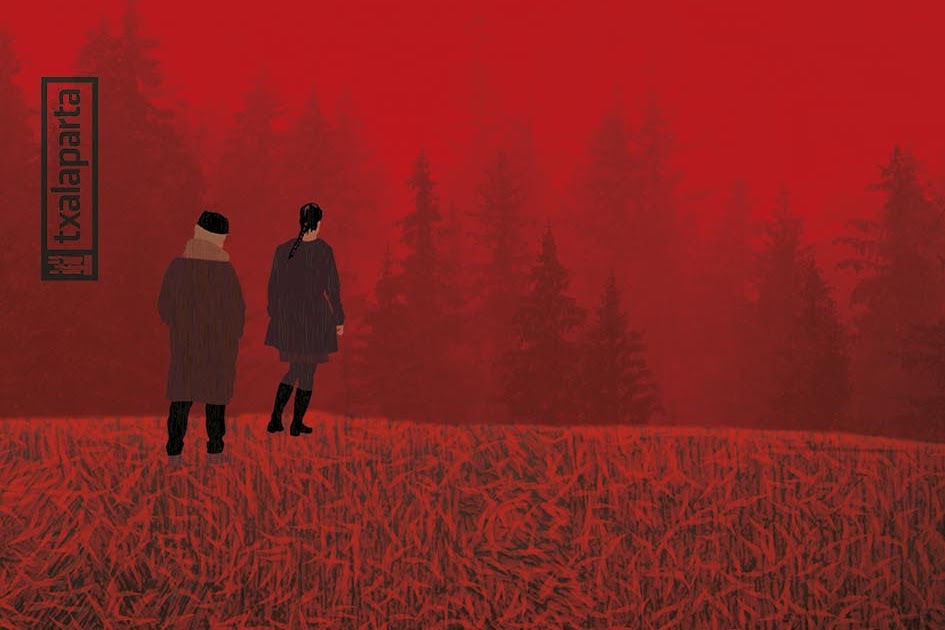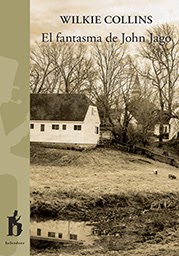
Original language: Russian
Original title: Go and don’t come back
Year of publication: 1978
Translation: Angels Master Martin / Svetlana Yaskova Yaskov
Valuation: Between recommendable and okay
This would be the synopsis of Go and not come back: Zosya, a young partisan, undertakes a dangerous mission alone in Nazi-occupied Belarus. Antón, a comrade in his thirties, joins him, even though this could be considered desertion. Both will live, in just a few days, an intense story of survival, love, heartbreak and betrayal; Both will be tested on a physical level by the elements (cold, wind…), hunger, fatigue and the Germans, and on a moral level by the incompatibility of their own interests and convictions.
The novel, by Vasil Bykaŭ, can be read in one sitting, exudes craftsmanship and is moving given its extraordinary sensitivity. Don’t expect to find an epic and grandiose adventure in it; Rather, we are faced with an intimate drama whose main focus is its two protagonists, as well as their reactions to the situation in which they find themselves immersed; a drama that deals with the inclemency of nature, the horror of war and the miseries of human selfishness.
Zosya and Antón are those kinds of deliberately simple literary characters who have been well outlined by the author and are credible to the reader. She, a former school teacher, lacks life experience and is full of ideals. He is an attractive man, decisive and willing to do anything to save his skin.
The romantic relationship that both develop feels organic and has enough shades so that it doesn’t feel sugarcoated. Furthermore, it mutates depending on the plot, until it becomes a dynamic that is much less naive, linear and predictable than it could have been in the hands of an unskilled writer.
The rhythm of Go and not come back never declines. Not even in the initial two-thirds of the novel, in which there is hardly any action. Vasil knows how to imbue the plot with formal beauty through simple but effective prose, and how to make his characters interesting by forcing them to rub, clash or redeem themselves. Likewise, Vasil does not depend on intrinsically tense scenes (conflicts, chases, shootouts…) to make anguish catch our throats. On the contrary: he manages to make an atmospheric brushstroke here, an introspective passage there, keep us on alert, hoping that nothing breaks the false calm.
There are two great lessons to learn after reading this text. The first: that the enemy is not necessarily the invader, but also the ally capable of betraying you when the winds are no longer favorable. The second (and this reflection is verbalized by the author himself in an emotional epilogue): that it is not enough to appreciate peace, but one must know how to defend it.
There are a couple of sections that are less successful, although it could not be said that they significantly hinder the whole. On a thematic and plot level, I think that Antón’s characterization does him a disservice, because he reveals himself somewhat abruptly as a sociopath. Personally, he preferred the appearance that, except in a climax, he maintains throughout the story: that of someone not necessarily evil, but willing to do anything to save his skin. And from the beginning he acts in a very questionable way on several occasions and his reflections show a dark side, but we attribute all this to a selfishness that, let’s admit it, is even reasonable in an extreme situation. However, he ends up revealing himself to be a true sociopath; which, let’s understand, does not take away one bit of complexity, but it does dynamite, at least in part, that message that I extracted from the work that allies can stab in the back when it suits them.
Another minor defect Go and not come back is that, in my opinion, it is unconvincing that Antón was captured by the partisans so easily. Hadn’t he anticipated, calculating as he is, that the farmer might betray him? Why doesn’t he try harder to find excuses before allowing himself to be tied down?
Summarizing: Go and not come back It is a very interesting contribution to war literature that prioritizes the exploration of the human psyche and the obliquity of interpersonal relationships to the context in which they develop. Given the quality of his writing, the sensitivity of his message, and the effectiveness of his characters and plot, it is clear that Bykaŭ is an extremely talented author.
Source: https://unlibroaldia.blogspot.com/2023/12/vasil-bykau-ir-y-no-volver.html


